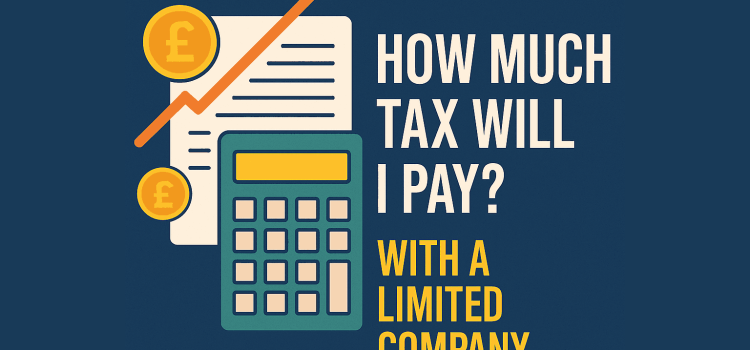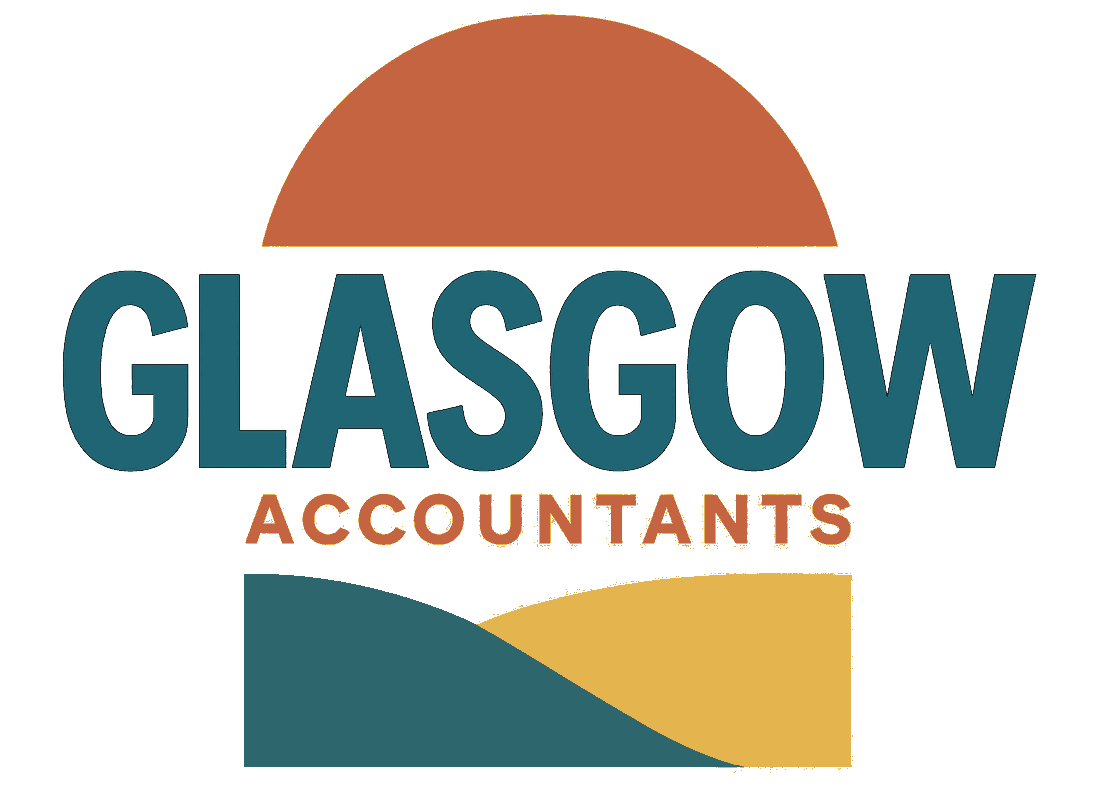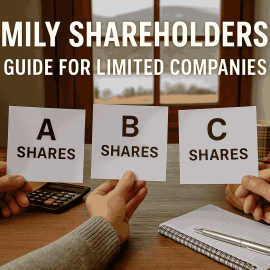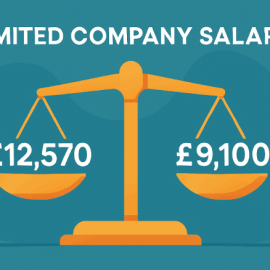
Sole Trader or Limited Company?
When £40,000 Profit Signals It’s Time to Reconsider
If you’re running a small business in Glasgow or the surrounding area, there’s a good chance you’ve asked yourself:
“Should I stick with sole trader status—or is it time to form a limited company?”
It’s a fair question, and one I hear often. While being a sole trader works well when starting out, once your annual profits hit around £40,000, it’s time to take a serious look at the numbers.
Let’s break down the differences—and what they mean for your take-home pay.
How Sole Traders Are Taxed
As a sole trader, your business income is treated as your personal income. Simple, yes—but not always tax-efficient as profits rise.
Example: £40,000 Profit (Scotland – 2025/26 tax year)
- Personal Allowance (tax-free): £12,570
- Starter Rate (19%) on £2,162 = £411
- Basic Rate (20%) on £11,829 = £2,366
- Intermediate Rate (21%) on £13,439 = £2,822
- Class 4 NIC (6% on £27,430) = £1,646
✅ Total tax & NIC = £7,245
✅ Net take-home = £32,755
Not bad—but with few tax planning tools available, you’re locked into a fairly fixed outcome.
Limited Company: A More Flexible Structure
When you run your business through a limited company, you wear two hats: director and shareholder. That gives you control over how and when you draw income—usually via a combination of salary and dividends.
Let’s see how that same £40,000 profit could work under a company structure:
Step 1: Take a Director’s Salary
- £12,570 salary
- Covered by your full Personal Allowance → no income tax
- Employer NIC: (£12,570 – £9,100) × 13.8% = £479
- Employee NIC: £0
Step 2: Corporation Tax on Remaining Profit
- £40,000 – £12,570 = £27,430
- Corporation Tax at 19% = £5,211
Step 3: Dividends from Post-Tax Profits
- Remaining profit = £22,219
- First £500 = tax-free
- Remaining £21,719 @ 8.75% = £1,899 tax
✅ Total tax & NIC = £7,110
✅ Net take-home = £32,890
A Modest Gain—But a Strategic One
At £40k profit, the tax saving is relatively small—around £145—but the real advantage of going limited is what happens as your profits grow.
The gap widens quickly, and you gain far more flexibility in how you extract and retain earnings.
Why £40k Profit Is a Natural Crossroads
Once you’re earning £40,000+ in profit, you’re past the “testing the waters” phase. You’re established—and ready to think longer-term.
Here’s why limited company status starts to make more sense:
✅ Lower Overall Tax
As your profits climb, the company structure allows you to manage and reduce your total tax burden more effectively.
✅ Control Over Timing
You decide how much income to draw and when. That lets you plan around personal tax thresholds and manage liabilities year-on-year.
✅ Professional Image
In many sectors, being a limited company gives you credibility—especially when dealing with larger clients or agencies.
✅ Limited Liability
Your personal finances are legally separated from the company. If something goes wrong, your personal assets are protected.
✅ Ready for Growth
A limited company structure makes it easier to scale—whether by bringing in partners, selling the business later, or handing it down.
When Does It Really Pay Off?
Once profits rise above £50,000, the limited company structure typically starts offering noticeable tax savings, especially when used with careful planning around salary, dividends, and retained profit.
Local, Personal Advice—For Glasgow Businesses
I’ve helped many business owners across Glasgow switch from sole trader to limited company status. The most common thing they tell me afterwards?
“I wish I’d done this sooner.”
Making the change isn’t just about saving tax—it’s about building a stronger foundation for the future. A company structure gives you more options, more resilience, and more control.
Want to Know if It’s Right for You?
If your profits are approaching (or above) £40,000, let’s run the numbers together. I’ll give you a side-by-side comparison—based on your actual business setup—and help you decide whether switching makes sense.
👉 Contact Glasgow Accountants – Supporting small business owners across Glasgow with practical advice and proactive planning that puts more back in your pocket.



